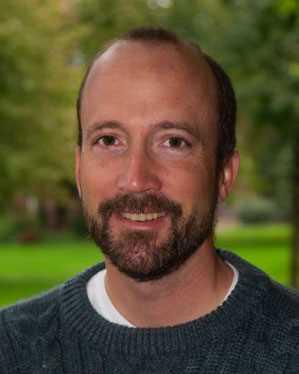Institute for Ecological Regeneration
The Institute for Ecological Regeneration is committed to bringing renewal and vitality to ecosystems through research and education.
Humankind is part of—not separate from—local, regional, national and global ecosystems. Humans have adversely impacted many natural systems, even as we awaken to the necessity for transformative practices. The institute will study the intersections between human and natural systems, through projects as varied as natural history investigations, biogeochemistry sampling, educational design and assessment and sociological inquiry. The institute will use the best investigative techniques and apply imagination to achieve an improved care and stewardship of creation. Principles of faith and shalom will guide the institute’s work to bring regeneration to ecological issues. The goals of the institute will be achieved through our in-house expertise working in collaboration with other researchers, educators and agencies.
Key activities
Projects and programs of the institute integrate three core themes: land, environmental education and faith. Conducting research, maintaining field collections and data, delivering formal academic courses, hosting symposia and disseminating learnings to the public contribute to achieving the goals of the institute.
Staff members and facilities
Dr. Jonathon Schramm, an associate professor in the Sustainability and Environmental Education Department, is the director of the institute. Staff members at Merry Lea with roles in the institute are:
- Dr. David Ostergren, director of the Graduate Program in Environmental Education
- Dr. John Mischler, director of agroecology
- Ruth Mischler, assistant professor of sustainable food systems
- Dr. Joel Pontius, director of the Sustainability Leadership Semester
- Bill Minter, director of land management
- Marcos Stoltzfus, director of Environmental Education Outreach
- Jennifer Schrock, leader of the Mennonite Creation Care Network
Faculty from Goshen College and other institutions of higher education will join in the interdisciplinary work of the institute. The Institute for Ecological Regeneration is housed at Merry Lea Environmental Learning Center of Goshen College. The 1,189-acre preserve provides a context and framework for the regenerative work of the institute. The facilities include classrooms, offices, a library, housing, field study sites and a seven-acre diversified organic farm.
Current and planned research
The institute pursues research in field-based ecology, environmental education pedagogy and practice, creation care and stewardship and sustainability in systems. Examples of questions that the institute explores are:
- What comprises a healthy regional landscape for all creatures?
- How does environmental education influence behavior?
- How do theology and faith belief systems inform environmental stewardship in congregations?
- How should the principles of peace and justice be applied to achieve effective Earth care practices and policy?
Current and planned programs
Formal programs include the Agroecology Summer Intensive (ASI) and the Sustainability Leadership Semester (SLS) for undergraduate students, a master’s in environmental education, and conferences and symposia on topics of ecological stewardship. The ASI and SLS experiences are a key component of majors offered by Goshen College, namely Sustainable Food Systems and Sustainability Studies, respectively.
Explanation of the institute’s “Transformation from Theory to Action” statement
“Engaging land, community, faith and peace”
Regenerative activities are informed through observations in life systems. The ways in which organisms interact with each other and with their environment form the basis for theories, concepts, and practice. Applying these understandings to real life issues in ways that are renewing and life giving is transformational. The institute provides a context for studying, integrating and applying the interdisciplinary constructs of resilience of the land, responsibilities of people in community, and commitments to peace and justice.
The role of undergraduate/graduate students in the institute
Undergraduate students will have direct involvement in the goals of the institute through inquiry-based learning and problem solving in formal coursework in agroecology, sustainability, environmental science and interdisciplinary studies. They will also have opportunities to conduct research projects in the summer with faculty and other institute members.
Each graduate student in the Master’s in Environmental Education Program chooses a project from one of the following areas: field ecology, environmental pedagogy, or environmental issues. In addition to research aspects of the project, they develop curriculum related to their topic for various age groups. The graduate student projects tie into the disciplinary foci of the experts at the institute.
Why the institute matters
The disconnect between people and their ecological home has led to a lack of care for the Earth. The goals of this institute will address this gap by engaging deeply in learning about systems, drawing people to participate in this learning process, and calling people to practice regenerative living. This uniquely positions Goshen College to be a transformative change agent through the themes of ecological regeneration and global citizenship.
Contact Info
If you have questions about The Institute for Ecological Regeneration, contact Dr. Jonathon Schramm.
Dr. Jonathon Schramm
Director of the Institute for Ecological Regeneration
-
(260) 799-5869
-
Merry Lea Environmental Learning Center





